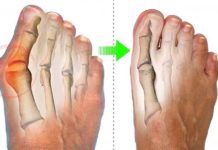Have you tired of failing with the diet?
Would you like to lead a healthier lifestyle without facing so many failures all the time? Well, first of all, it’s important that you do not despair.
Next we will give you some guidelines that will facilitate the process. The most important thing is that they will help you improve in the long term.Ready? Pay attention and, most importantly, take action.
1. Stop seeing diet as a punishment and perceive it as a long-term change
 One of the main reasons that make you fail with the diet is to see it as a negative consequence to your lifestyle.
One of the main reasons that make you fail with the diet is to see it as a negative consequence to your lifestyle.
If you fall into this error, you will find yourself thinking all the time at the moment you can put it aside.
The problem with this aspect is that, even if you manage to lose kilos, you may recover them once the regimen is finished. It is important that you mentalize with the idea that diet is a change that seeks to improve your life and not just a way to lose “X” number of kilos.
In this way, you will stop seeing the new regime as something negative.Remember:
- Stop setting a date as the final day of the diet.
- Reward yourself every time you achieve a new goal and create new goals every time.
2. Avoid restrictive diets
Although restrictive diets are often very famous, they are not always a good idea.
If your doctor has not indicated it to you and if there is no real reason to follow it, do not do it. These diets present two problems:
- They do not teach you how to eat well. Due to the nutritional deficiency that these diets usually have, they will not leave you good eating habits . In some cases they may even leave you with the opposite effect. That is, you could lose kilos but not fat, but muscles and nutrients.
The best way not to fail with the diet is to follow a diet designed especially for you.
A good option is to seek advice from a nutritionist who teaches you to organize a well balanced dish according to your tastes. Another option is for him to organize the menus so that you only prepare them.
- They are very limited in times. Since restrictive diets eliminate nutrients, you will never find them recommended for a long period of time. Most are recommended for 3 to 7 days. This means that you will not see long-term results . Although you could apply them regularly, it is not recommended, because you will feel tired and in a bad mood.
3. Educate yourself about what is a healthy lifestyle
 Instead of following diets that promise miraculous kilos losses, it is advisable that you understand how your body works and why it requires certain nutrients.
Instead of following diets that promise miraculous kilos losses, it is advisable that you understand how your body works and why it requires certain nutrients.
The most important thing is that you learn about these nutrients, where they come from and which are the best ways to include them.
In this way, you will see the healthy diet as a punishment . By being more informed you will have less risk of falling into the temptation of always eating what you should not. Of course, on occasion you can allow yourself some craving, but you will be more aware of how it works in your body and the correct amounts to avoid long-term damage.
If you have doubts and you no longer want to fail with the diet, seek the advice of a nutritionist. Most of them explain how foods act and teach you to make correct decisions. In case your nutritionist has not done it yet, ask her to explain or help you understand how the portions indicated by her work .
4. Leave a space in your diet for the foods that you like but are not as healthy
 Failure with diet is less possible when you stay open to include unhealthy food from time to time.
Failure with diet is less possible when you stay open to include unhealthy food from time to time.
Some nutritionists usually leave a day or a meal free a week to help you in the process.
In any case, if you do not want or can not pay a specialist, ensure that at least 80% of your diet is based on vegetables, fruits, meats, dairy products and fresh vegetables . The rest, you can leave for less healthy foods.
Ideally, prepare them at home. For example, instead of ordering the pizza of a lifetime, learn to prepare pizza dough and create some homemade varieties that include vegetables and fresh foods.
Can you think of another advice not to fail with the diet?













